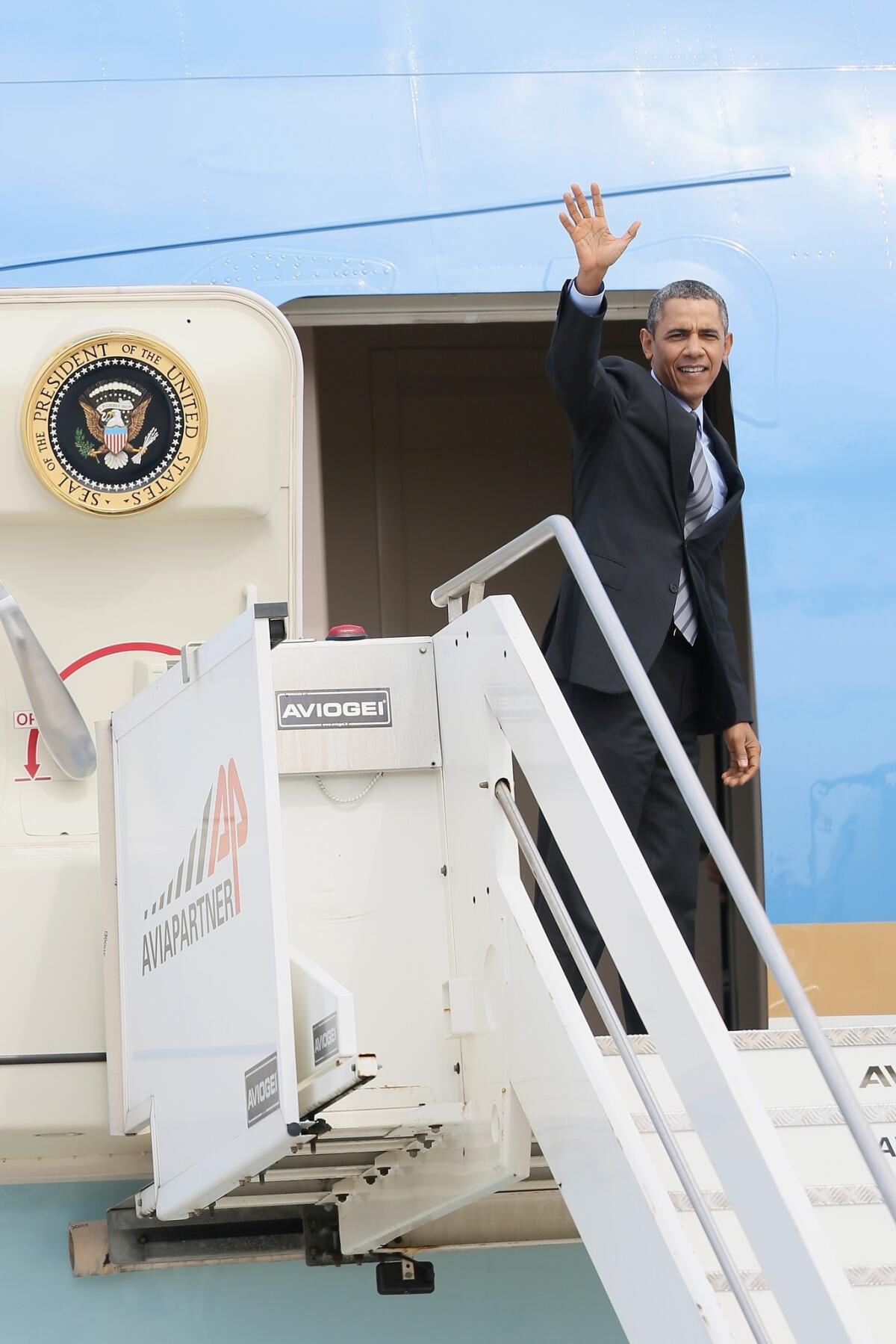Obama hopes to bridge gaps on visit to Saudi Arabia

- Share via
RIYADH, Saudi Arabia -- President Obama jetted across the Mediterranean Sea on Friday on a diplomatic mission to try to bridge the gaps between the U.S. and its longtime ally, Saudi Arabia.
Obama landed in the capital, arriving from Rome where he capped off the European stretch of his week-long trip overseas. The president was greeted by Prince Khalid bin Abdulaziz Al-Saud, the governor of Riyadh, and a line of Saudi soldiers before boarding a helicopter bound for a desert camp, the setting for a meeting with the ailing King Abdullah and dinner with the royal family.
Since leaving Washington on Sunday, Obama’s agenda on his trip abroad has largely been overtaken by the crisis of the moment: the dispute over Russia’s annexation of Crimea from Ukraine. But his last stop is a reminder of the trouble elsewhere that has confounded Obama and his foreign policy team. Iran, Syria, Egypt and the Middle East peace process top the list of items for discussion.
On each topic, Obama’s broad goal is to try to shore up a relationship that for decades had been a bedrock of U.S. policy in the region. But that relationship has shown signs of fracture as Saudi Arabia has drifted away from American influence and begun more openly pursuing its own path.
In Egypt, the Saudis have backed and financed a military-led government as it led a crackdown on the opposition Muslim Brotherhood, as well as journalists and political activists.
The U.S. will urge the Saudis to use their sway to try to get Cairo to cool it.
“Our point on Egypt is going to be that we have a shared interest in stability. The United States wants to have a strong relationship with Egypt, but that stability ultimately is going to be best served by Egypt following through on its commitment to transition to free and fair elections and democratic governance,” deputy national security advisor Ben Rhodes said on Air Force One on the way to Riyadh.
Similarly, in Syria, the Saudis have broken with the U.S. in sending money and weapons to various opposition groups, including jihadists, in its attempt topple President Bashar Assad.
The Saudis have largely failed to persuade the U.S. to set aside worries about weapons falling into dangerous hands and ramp up its military assistance.
Obama comes with no new promises of assistance to announce on that front, Rhodes said. He argued that the two countries have improved their coordination on sending assistance, making sure that their contributions are complementary.
kathleen.hennessey@latimes.com
Twitter: @khennessey
More to Read
Sign up for Essential California
The most important California stories and recommendations in your inbox every morning.
You may occasionally receive promotional content from the Los Angeles Times.











